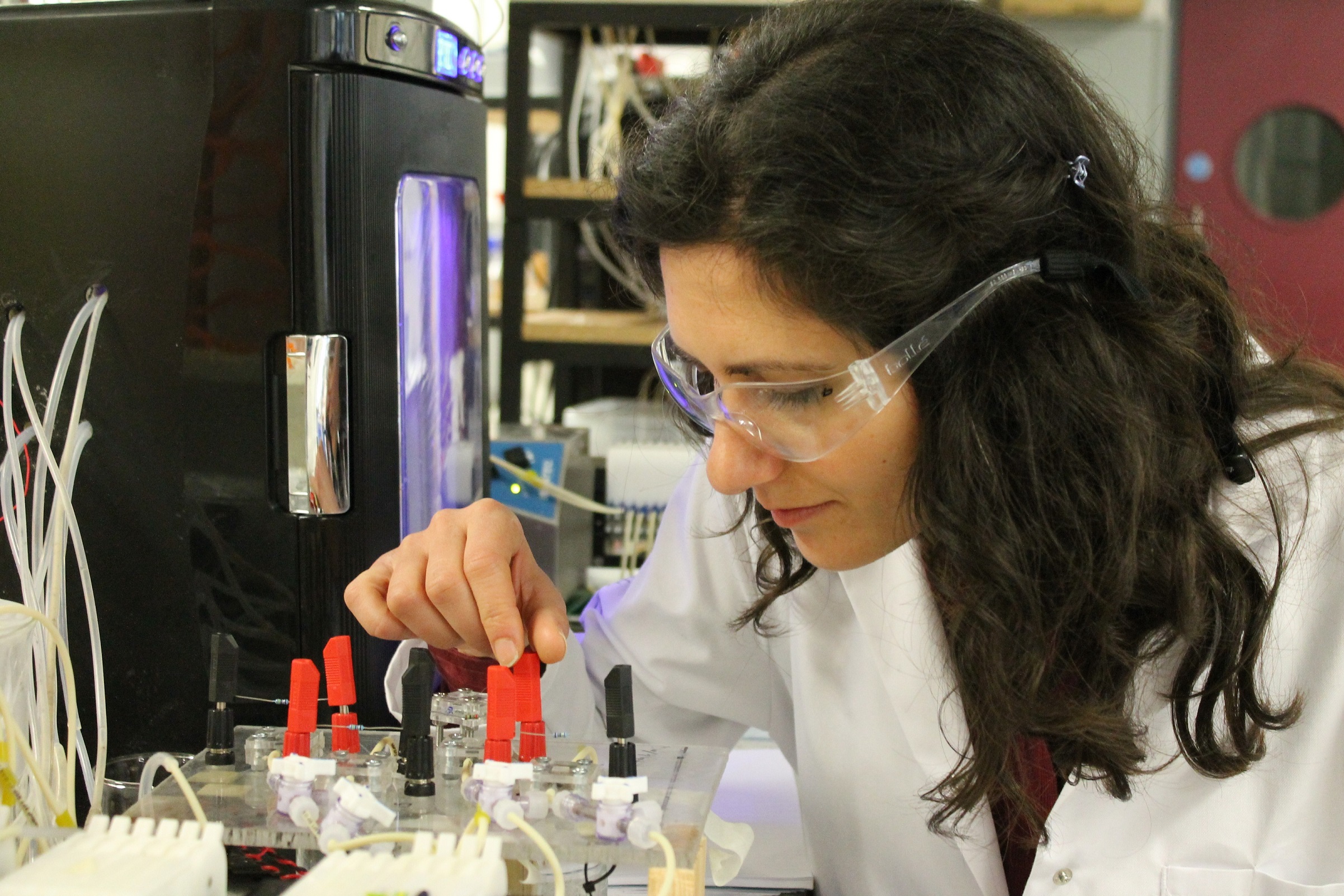EPSRC is investing £4.5 million to safeguard the UK’s water, energy and food security. With the world’s population due to grow to eight billion by 2030, humanity is facing a crisis with predictions of increasing demand and shortages of water, energy and food.
 Water and energy are needed to produce food; water is required to produce energy and with the advent of biofuels, energy and food are increasingly competing for land. This means that any shortage or disruption of one resource will impact on the other two. This unbreakable link between all the resources is known as the water-energy-food nexus. Mirella Di Lorenzo from the Department of Chemical Engineering, together with other 25 academics, was selected to participate in January 2015 in a sandpit organised by EPSRC on this topic. She was the only academic representing the University of Bath in this sandpit and the project she was involved in, Vaccinating the Nexus, was awarded £1.6 million (Grant EP/N005961/1).
Water and energy are needed to produce food; water is required to produce energy and with the advent of biofuels, energy and food are increasingly competing for land. This means that any shortage or disruption of one resource will impact on the other two. This unbreakable link between all the resources is known as the water-energy-food nexus. Mirella Di Lorenzo from the Department of Chemical Engineering, together with other 25 academics, was selected to participate in January 2015 in a sandpit organised by EPSRC on this topic. She was the only academic representing the University of Bath in this sandpit and the project she was involved in, Vaccinating the Nexus, was awarded £1.6 million (Grant EP/N005961/1).
This research, led by Dr Paul Kemp, University of Southampton, will be conducted by an inter-disciplinary groups of scientists based at 8 universities in the UK.
This project will focus on improving the resilience of water, energy and food systems. It will investigate how nexus ‘shocks’, such as extreme climatic events that cause flooding or drought, energy shortages, or unsustainable infrastructure development, may help inform the development of more environmentally sustainable and secure systems.
The project will use information collected during the recent flooding on the Somerset Levels to model the potential for alternative flood resistant agricultural systems, including those used to produce bioenergy crops. Further, planning decision support tools will be developed to help develop an environmentally sensitive approach to deliver the UK energy and water infrastructure plan. Although the project will focus on UK case studies it will have international relevance and help develop expertise and capability of global value.
Dr Pal Kemp, said: “To ensure future security of supply we need to develop innovative approaches to environmentally sustainable resource management. This can only be achieved by adopting creative interdisciplinary approaches to develop solutions to the complex challenges faced."
Dr Mirella Di Lorenzo said "We have a range of different backgrounds on board varying from engineering to crop science, maths and social science. This a unique opportunity for me to be involved in such an exciting multidisciplinary project. In Bath we will work on the development of on-site sensors for the online monitoring of microbial activity in soils and nutrient depletion/ pollutant release from soils to water systems due to extreme climate changes such as floodings or droughts".
Professor Philip Nelson, Chief Executive of EPSRC said, “This is one of the most important challenges facing the human race, and one of the most complex. The uniqueness of these projects comes from studying all three problems together, something that hasn’t been done before.
"This project is a great opportunity for scientists with expertise in different disciplines to come together to find solutions".
Respond
